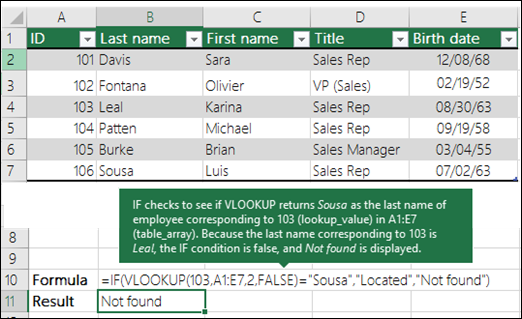
When it doesn't find an exact match, it stops looking when it finds the closest value to the value in H2 that's less than that value and then returns the product name for the same row. The function then uses this value to match a value in column C, the first column in the lookup range (but not necessarily the first column in the data set). For now, let's review how this function works within context. Returns a value that doesn't make sense-it's wrong, but more about that in a minute. Use FALSE to indicate that lookup_value isn't sorted.

TRUE is the default and indicates that lookup_value data is sorted.

This numeric value identifies the corresponding column to the right of lookup_value. This is the value you're trying to match. VLOOKUP(lookup_value, lookup_range, offset, is_sorted) How VLOOKUP() works in ExcelĮxcel's VLOOKUP() function returns a corresponding value after matching a lookup value using the following syntax: This article assumes you have basic Excel skills such as entering functions and sorting, but even a beginner should be able to apply the instructions successfully. This function works similarly in Excel for the web. You can work with your own data or download the demonstration.
#EXCEL FOR MAC USE VLOOKUP WINDOWS 10#
I'm using Microsoft 365 on a Windows 10 64-bit system, but you can work with earlier versions. SEE: 83 Excel tips every user should master (TechRepublic) In this article, you'll learn about VLOOKUP() and then we'll use it to find a match that almost matches the lookup value. Most of the time you will want an exact match, but sometimes, you will need to return the closest matching value. It's a flexible and extremely useful function.

For instance, you might want to return the price of an item by using the item's name or a student's final grade by using the student's name. It's a search function that lets you retrieve values by looking up a corresponding value. One of Microsoft Excel's most commonly used functions is VLOOKUP().
#EXCEL FOR MAC USE VLOOKUP HOW TO#


 0 kommentar(er)
0 kommentar(er)
